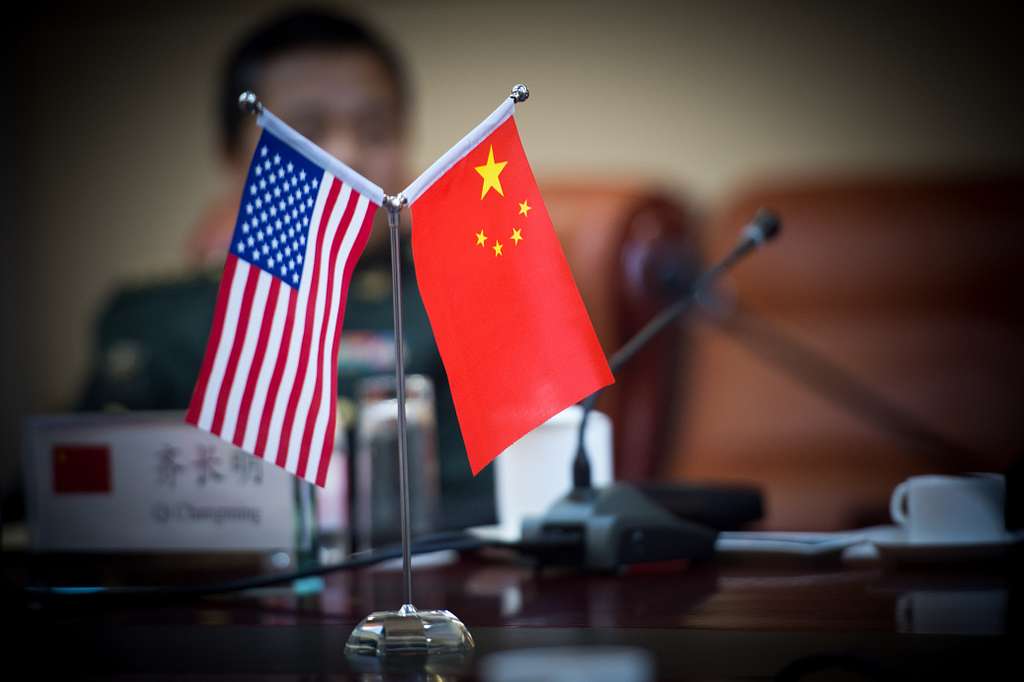Today’s Headlines and Commentary
Lawfare’s daily roundup of national security news and opinion.
On Sunday, a gunman shot and killed six adults before killing himself at a birthday party in Colorado Springs, Colorado, reports the Associated Press. Children attended the party but were not injured in the shooting. The alleged gunman was the boyfriend of a female victim who attended the party, and the party was celebrating the birthday of another victim who was killed. According to authorities, a motive was not immediately clear. The Sunday attack was Colorado’s worst mass shooting incident since a gunman killed 10 people at a supermarket in Boulder on March 22, 2021.
A ransomware attack hit one of the largest U.S. pipelines that carries 45 percent of the East Coast’s fuel supplies according to the New York Times. The pipeline has been shut down since Friday as a result of the attack. Colonial Pipeline, the operator of the system, said Saturday that its computer networks had been hacked in a ransomware attack—in which criminal groups secure and refuse to release data until the victim provides a ransom payment. Biden administration officials said they believed a criminal group—not a foreign nation—conducted the attack, although sometimes these groups are loosely associated with foreign intelligence agencies. Colonial has not yet said whether it would pay the ransom. This ransomware incident comes as attacks on critical infrastructure have increased in recent months after two high-profile breaches—the SolarWinds and Microsoft Exchange attacks—highlighted the vulnerability of U.S. networks.
The Biden administration is reportedly drafting an executive order that would establish new digital safety regulations for federal agencies and contractors developing software for the federal government, reports the Times. The order would mandate federal agencies adopt a “zero-trust” approach toward software vendors—requiring contractors to certify compliance with security steps to ensure the software being used does not contain malware or other vulnerabilities. The order would also create a “cybersecurity incident review board” that would likely investigate potentially dangerous incidents.
More than 200 Palestinian protesters were injured in Jerusalem on Friday during clashes with Israeli police as tensions rose over the evictions of several Palestinian families from an Arab neighborhood, writes the Washington Post. More than a dozen Israeli police officers were also injured in the incident. Officers near the Al-Aqsa Mosque deployed stun grenades as protesters threw bottles and rocks.
The Post reports that an additional 300 Palestinians and five Israelis were injured on Monday in clashes among Palestinians, Israeli police and far-right Jewish Israelis. Israeli Prime Minister Benjamin Netanyahu rerouted a flag parade Monday commemorating Jerusalem Day—a controversial national holiday that has brought consistent protests. The Israeli police reportedly rejected calls from government security officials to reroute the parade. The organizers of the parade officially canceled the event, though the parade continued. It is unclear whether the marchers would attempt to enter the area banned by Netanyahu. Jews were also prohibited Monday from visiting the holy site known to Jews as the Temple Mount and to Muslims as the Noble Sanctuary after Hamas—the militant Islamist group that controls Gaza—warned Israel that it would stage attacks from the Gaza strip if Israel did not remove its forces from the Temple Mount. Today, Hamas launched several rockets into Israel shortly after 6 p.m. Jerusalem time.
Large explosions outside a high school in Kabul, Afghanistan, killed at least 50 people and wounded many more on Saturday, writes the Times. A car bomb was set off in front of the school, Sayed Ul-Shuhada, followed by the detonation of two more bombs as students were rushing to leave. The Taliban denied responsibility and denounced the attack. Sayed Ul-Shuhada conducts classes for male students in the morning and female students in the afternoon. The attack occurred when girls were leaving the school at around 4 p.m. At least 44 civilians and 139 government forces were killed in the last week in Afghanistan—the highest weekly number since October. These explosions come as many fear that the ongoing U.S. troop withdrawal from Afghanistan will leave Afghan women and social advancements vulnerable.
Another bomb blew up a bus on Sunday in Zabul province, Afghanistan, killing at least 11 people and wounding dozens more, according to Reuters. An explosion also hit a bus on Monday in Parwan province that killed two people and wounded nine more. The Taliban said Sunday that they would hold a three-day ceasefire later this week for the holiday of Eid al-Fitr.
The World Health Organization called a new coronavirus variant found in India a “variant of concern,” citing early studies that showed the variant may be more transmissive than others, according to the Wall Street Journal.
According to an extensive examination by the Washington Post, many of the baseless allegations of fraud concerning the 2020 presidential election originated with Republican businessman Russell Ramsland Jr. and his allies. After the 2018 midterm elections, Ramsland and his associates began presenting claims to conservative legislators and activists that voting-machine logs contained evidence of the manipulation of votes. The Post reports that Ramsland’s ideas remained on the fringe of politics until prominent Trump allies began to spread Ramsland’s claims of election fraud in 2020.
A new report by the International Federation of Journalists reveals that “Beijing used its media infrastructure globally to seed positive narratives about China in national media, as well as mobilizing more novel tactics such as disinformation,” according to the Times. China appears to have influenced reporting in Italy, Peru and Kenya, among other places. While governments like the U.S. and Russia have also used tools to influence global media, China is reportedly the most committed to this effort.
South Korean President Moon Jae-in said Monday that he views the final year of his presidency as the last chance to establish enduring peace with North Korea, writes Reuters. These comments come ahead of the South Korean president’s first summit with President Biden planned for May 21 in Washington. Moon is expected to urge the Biden administration to engage with North Korea, though the administration has reportedly shown little interest in prioritizing peace with Pyongyang.
ICYMI: Yesterday on Lawfare
Julia Ciocca, Michael Horowitz, Lauren Kahn and Christian Ruhl discussed how the U.S. government can improve its geopolitical forecasting procedures.
Email the Roundup Team noteworthy law and security-related articles to include, and follow us on Twitter and Facebook for additional commentary on these issues. Sign up to receive Lawfare in your inbox. Visit our Events Calendar to learn about upcoming national security events, and check out relevant job openings on our Job Board.





